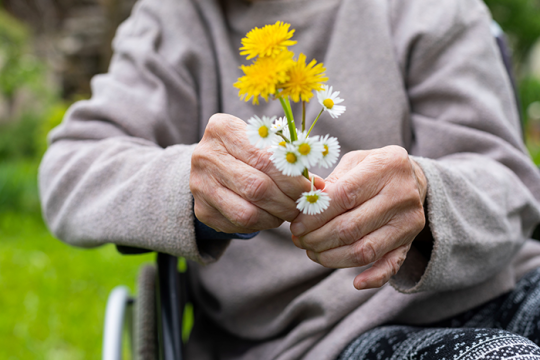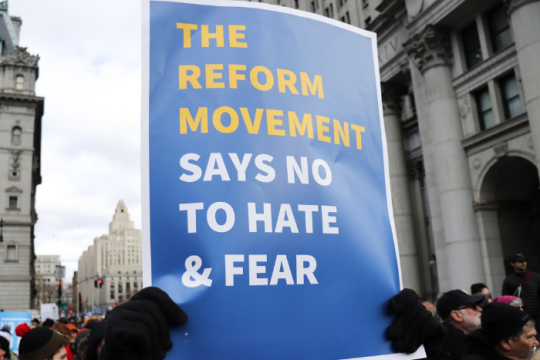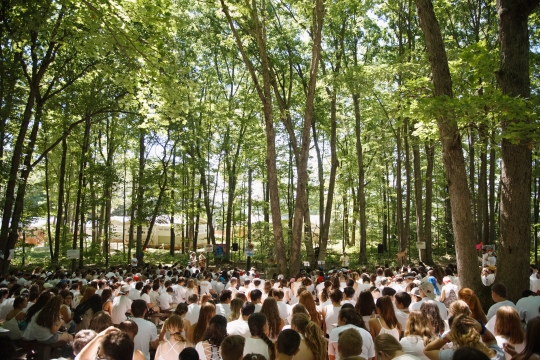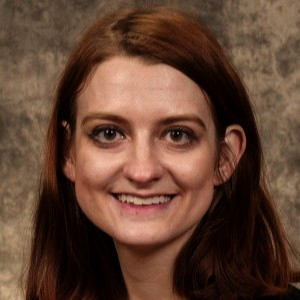
I’ve always loved the story of Esther. When I was seven, long before I claimed my Jewish identity, I even dressed up as Esther for Halloween (perhaps an early indicator of my Jewish soul?). Over the past few years, I’ve found that parts of the Purim story parallel parts of my own life. I’m a big believer in the power of stories to help build communities of belonging. The more ways people can see their experiences reflected in a story, the more likely they are to feel affirmed and included. In my case, the Purim story celebrates an interfaith relationship (like my own marriage). It also speaks to a much wider experience that we are all facing: whether we should hide our Jewish identity for a measure of safety, or if it’s better to lean into our identity so that people can understand that antisemitism hurts those they know and care about.
One of my favorite things about Purim is the fact that it celebrates an interfaith relationship. I’m not the first or last person to be in an interfaith relationship, but neither was Esther. Throughout history, there have been many people who married outside of their faith community. However, Esther’s case is unique in that her marriage allowed her to save the Jewish people from annihilation. While it’s unlikely that the current wave of antisemitism will be solved through one interfaith relationship, it is worth noting that more than 70% of non-Orthodox Jews self-identify as being in an interfaith relationship. Therefore, there are plenty of people who may not realize they’re connected to the Jewish community until it’s pointed out to them (much like the king who didn’t realize he had a personal stake in Haman’s plot until Esther pointed it out).
Esther’s story highlights a question more and more of us find ourselves asking: When should we hide our Jewish identity and when should we lean into it? All of us have different answers to this question, with different (and valid) reasons. My family didn’t acknowledge their Jewish heritage for three generations, which I suspect was due to antisemitism in North America during the Great Depression and World War II. In my case, reclaiming that heritage and living it proudly is a way to tell antisemites they didn’t win nearly a century ago, and they won’t win now. I’m also lucky in that I feel safe making that decision for myself and my family. I know that isn’t the case for everyone, and there really is no single correct answer to this question.
When Mordecai tells Esther to not reveal her true identity, it’s implied that he’s doing so out of concern for her safety. Today, many Jewish young people can hear echoes of the same concern from their parents. For instance, college students are being advised by their parents to tuck Star of David pendants inside their shirts or to forgo wearing them altogether, lest they become targets for hate.
Many parents can see themselves in Mordecai, trying to navigate being proud Jews while also doing everything they can to ensure their children’s safety in an increasingly dangerous environment. Though Mordecai is often referred to as Esther’s uncle/cousin, the Megillah states that, “when her father and mother died, Mordecai adopted [Esther] as his own daughter” (Esther 2:7). Therefore, we can gather that Mordecai’s advice to Esther was borne out of parental concern for her wellbeing.
Many of us like to see ourselves in Esther. One way I can see myself in her is how she asserts her own agency, even (perhaps especially) when it reads as though she is doing something that she is being pressured to do by outside forces. Many of us can also see our reflections in Mordecai as we try to nurture our Jewish identity while also keeping our children and loved ones safe. We can see King Ahasuerus in our friends and, in some cases, family members, who parrot the sentiments they’ve seen on social media without realizing how hurtful they’re being or refusing to stand up to others who spread antisemitic sentiments. Finally, sadly, we can also see Hamans in our stories. These Hamans are not defined by nationality or race, but by their willingness to use the current situation to stoke hatred on both sides to further their own agenda.
I love Purim because it celebrates a narrative that speaks to so many of us. I see Purim celebrating interfaith relationships like mine. I see Purim celebrating the love and concern of parents who are trying to help keep their families safe in the face of rising antisemitism. Finally, I see Purim as a celebration that encourages us to live authentically, balancing caution with courage as we each discover what being a “modern Jew” means to us.
Related Posts

Dying and Living with Dementia

The Union for Reform Judaism’s Responses to the Increase in Antisemitic Incidents

